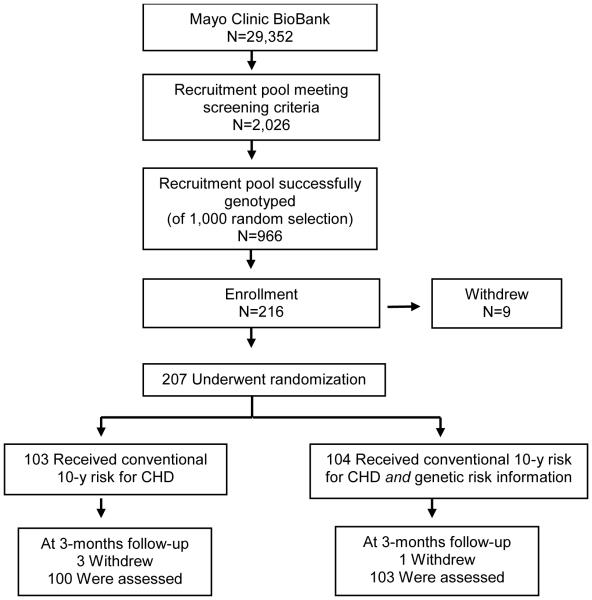Figure 1. MI-GENES study design.
Notes: The Myocardial Infarction (MI-GENES) study was designed to determine the impact of genetic risk score (GRS) disclosure on clinical and psychosocial outcomes in residents of Olmsted County, Minnesota. Participants aged 45-65 years, with no history of statin use or coronary heart disease (CHD), and at intermediate risk for CHD based on a 10-year risk of 5-20% using the Framingham risk score (or conventional risk score; CRS) received their CRS or their CRS and a GRS based on 28 CHD variants. CRS and GRS were disclosed in conversations with a genetic counselor. This was followed by shared decision-making with a physician, to discuss potential initiation of statin therapy for high-risk patients.

